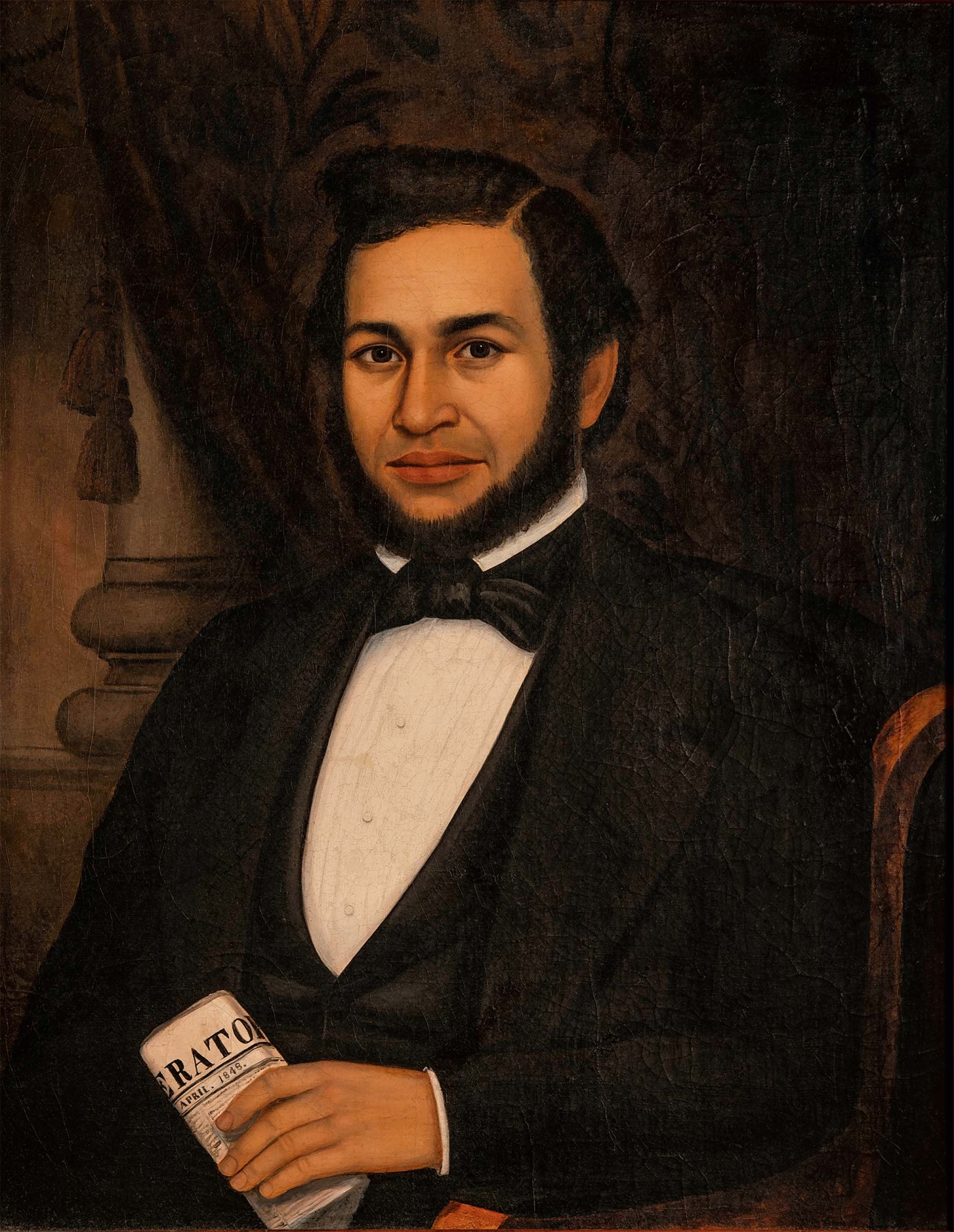Land of Six Hundred Thousand Despots
The autobiography of an enslaved man who fled to Australia describes 1800s America
Literary critic Jonathan Schroeder ’07 AM was scouring the archives researching the life of the famous 19th century African American writer and ex-slave Harriet Jacobs in 2016 when he stumbled across the most important find of his career: her brother’s long-forgotten autobiography. As he began reading John Swanson Jacobs’s words, Schroeder quickly understood he had found a revolutionary manifesto worthy of a place in the canon of American political thought.

“I immediately knew that this was a really, really important discovery—I was struck with an instant conviction,” says Schroeder, who later earned a doctorate in English literature. “I realized it would be irresponsible to not switch to working on it right away.”
The resulting book The United States Governed by Six Hundred Thousand Despots: A True Story of Slavery; A Rediscovered Narrative, with a Full Biography (University of Chicago Press, 2024) gives Jacobs a renewed platform for his writing and traces the outlines of his life based on years of research from Schroeder.
Jacobs had escaped a life of slavery in North Carolina, succeeded as a gold miner in California, toured the U.S. alongside Frederick Douglass as an anti-slavery activist, and traversed the high seas as a sailor after the Fugitive Slave Act of 1850 forced him to flee the country. He strolled into an Australian newspaper office in 1855 and convinced the white editors there to publish his life story. Out of the 10 million African descendants enslaved in America prior to the signing of the Emancipation Proclamation, there are less than 100 known firsthand accounts of slavery.
“Since I cannot forget that I was a slave, I will not forget those that are slaves,” Jacobs writes. Yet his writings failed to reach mass audiences outside Australia and Jacobs’s later efforts to publish in Great Britain saw his biting political analysis edited down into a defanged personal narrative of escaping slavery.
Unlike prevailing accounts, Jacobs’s uncensored writing, rediscovered by Schroeder, did not seek to drum up pity by focusing on the pain and suffering of the enslaved—a tactic pushed by white abolitionists who often filtered and controlled the publications of formerly enslaved African American writers, Schroeder explains. Instead, Jacobs zeroed in on the entrenched immorality of the U.S. political system, titling his memoir in Australia The United States Governed by Six Hundred Thousand Despots—a reference to the number of Americans who owned slaves.
As Jacobs writes: “If a man steals my horse, he is a horse-thief; but if he steals me from my mother, why he is a respectable slaveholder, a member of Congress, or president of the United States; while in fact he is as far beneath the horse-thief as I am above a horse.”

The self-exiled Jacobs—who refers to the Constitution as “devil in sheepskin” and is no less scathing of the Declaration of Independence—“turns his life into an arc of refusal,” Schroeder writes in the book’s introduction, “and what he refuses is America itself.”
For Schroeder (pictured here), tracking down details of the globe-trotting Jacobs’s life was like jumping down “100 different rabbit holes constantly” while navigating the distortions of a historical record hardly focused on documenting his existence.
Even so, Schroeder gathered bits of treasure. An uncovered hostel ledger from a British maritime museum helped reveal that Jacobs worked on 35 different ships in 15 years. And a once-lost painting of an anonymous Black intellectual appears likely to be Jacobs, according to Schroeder’s years of research. Schroeder is now pursuing a book-length biography of Jacobs, his sister, and their descendants, and is collaborating with Jacobs’s living relatives to replace the single slab of stone that marks his obscure grave with a more expansive monument to honor his legacy.
Schroeder believes Jacobs’s writing is as relevant as ever today for having never maintained any illusions about the nature of American society and what he considers the myth of its democratic promise.
“If we want to look for where authoritarianism comes from in America, where massive disparities and asymmetries of power are created, maybe don’t look for encroaching extremists coming from the outside,” Schroeder says, “but rather look to how America was framed in the first place.”





